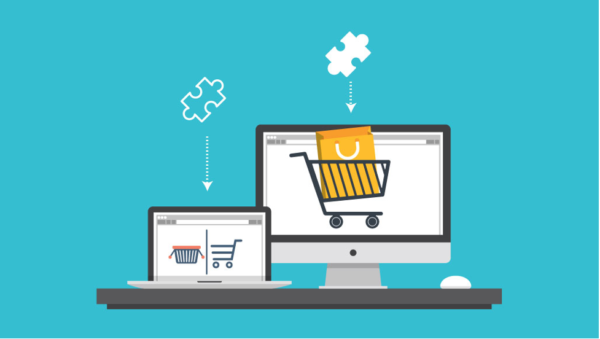Are you a business owner looking to take your online store to the next level? Well, look no further than ecommerce integration! In today’s digital age, an integrated ecommerce platform is essential for success. But what exactly is ecommerce integration and why do you need it? We’re here to break it down for you in this informative blog post. So grab a cup of coffee, sit back, and prepare to unlock the true potential of your online business with ecommerce integration!
Benefits of Ecommerce Integration
Ecommerce integration is crucial for the success of any online business. By seamlessly connecting your ecommerce platform with other systems and applications, you can unlock a wealth of benefits that will help streamline operations and boost sales.
One of the key advantages of ecommerce integration is improved efficiency. With all your systems working together harmoniously, you can eliminate manual data entry and reduce errors. This means less time spent on administrative tasks and more focus on growing your business.
Another benefit is enhanced customer experience. By integrating your ecommerce platform with CRM software, you can gain valuable insights into customer behavior, preferences, and purchase history. This allows you to personalize marketing efforts, provide targeted recommendations, and ultimately increase customer satisfaction.
E-commerce Platform Integration also enables inventory management optimization. When your ecommerce platform communicates in real-time with inventory management systems or ERPs (Enterprise Resource Planning), it ensures accurate stock levels across all channels. This helps prevent overselling or running out-of-stock situations, leading to happier customers and fewer lost sales opportunities.
Different Types of Ecommerce Integration
When it comes to ecommerce integration, there are several different types that businesses can utilize to streamline their operations and enhance customer experience. Let’s explore some of the most common types:
- 1. API Integration: Application Programming Interface (API) integration allows different software systems to communicate with each other seamlessly. This type of integration enables real-time data transfer between your ecommerce platform and other business applications, such as inventory management or accounting software.
2. Payment Gateway Integration: Integrating a payment gateway into your ecommerce website is essential for securely processing online transactions. Popular payment gateways like PayPal, Stripe, and Square offer easy-to-use APIs that can be integrated directly into your checkout process.
3. CRM Integration: Customer Relationship Management (CRM) integration helps you manage customer data effectively by syncing information from your ecommerce platform with your CRM system. This allows you to track purchase history, personalize marketing campaigns, and provide better customer service.
4. Logistics Integration: Integrating logistics solutions like shipping carriers or order fulfillment providers streamlines the shipping process by automatically generating labels, tracking shipments, and updating customers on delivery status.
5. Marketing Automation Integration: By integrating marketing automation tools with your ecommerce platform, you can create personalized email campaigns based on customer behavior or demographics. This helps drive repeat purchases and increase customer loyalty.
Top Ecommerce Integration Platforms
When it comes to integrating your ecommerce store with various platforms and tools, having the right ecommerce integration platform is crucial. These platforms act as a bridge between your online store and other software or applications, allowing seamless data flow and automation.
- 1. Shopify: One of the most popular ecommerce integration platforms, Shopify offers a range of integrations that can enhance your online store’s functionality. From payment gateways to inventory management systems, you can easily connect with third-party apps through their extensive app store.
2. WooCommerce: Built specifically for WordPress websites, WooCommerce provides numerous integrations to help you optimize your online store. With plugins available for everything from shipping solutions to email marketing services, you can customize your store according to your unique requirements.
3. Magento: Known for its scalability and robustness, Magento offers an array of integration options. Whether it’s connecting with CRM systems or implementing advanced analytics tools, this platform has got you covered.
4. BigCommerce: As another popular choice among merchants worldwide, BigCommerce boasts a wide range of built-in integrations as well as an app marketplace where you can find additional extensions for enhanced features and functionalities.
5. Salesforce Commerce Cloud: If you’re looking for enterprise-level capabilities in terms of ecommerce integration, Salesforce Commerce Cloud is worth considering. This platform allows seamless integration with various Salesforce products like CRM and Marketing Clouds while offering powerful omnichannel capabilities.
In conclusion,
Having the right ecommerce integration platform is essential for streamlining processes and maximizing efficiency in managing your online business operations across different channels. Depending on the specific needs of your business and budget constraints, you should carefully evaluate these top platforms before making a decision.
How to Choose the Right Ecommerce Integration Solution
Choosing the right ecommerce integration solution is a crucial decision for any business looking to streamline their operations and maximize efficiency. With numerous options available in the market, it’s essential to consider your specific needs and requirements.
Start by evaluating your current ecommerce platform and identifying any limitations or challenges you may be facing. This will help you determine what features and functionalities are necessary in an integration solution.
Next, research different ecommerce integration platforms that align with your needs. Consider factors such as compatibility with your existing systems, scalability, ease of use, customer support, and pricing.
Take advantage of free trials or demos offered by integration providers to test out their solutions firsthand. This will give you a better understanding of how well the platform integrates with your ecommerce system and whether it meets all your requirements.














Be First to Comment